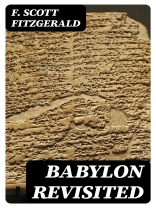In F. Scott Fitzgerald’s poignant short story ‘Babylon Revisited, ‘ the author explores themes of loss, redemption, and the complexities of personal identity against the backdrop of post-World War I Paris. Written in a crystalline prose style characterized by vivid imagery and emotional depth, Fitzgerald captures the disillusionment of the Jazz Age. The narrative follows Charlie Wales, a man seeking to reclaim his daughter after a tumultuous past defined by excess and hedonism. The story deftly illustrates the struggle between the allure of the past and the harsh truths of present realities, reflecting the era’s profound psychological tensions. Fitzgerald’s own life experiences, including his tumultuous marriage to Zelda Sayre and his tumultuous relationship with alcoholism, deeply informed the creation of ‘Babylon Revisited.’ Drawing upon his observations of the opulence and eventual decline of 1920s American expatriates in France, Fitzgerald poignantly intertwines his personal narratives with broader societal critique. This intersection of personal and cultural deterioration offers a rich tapestry for understanding his conflicted characters and their yearning for redemption. Readers are wholeheartedly encouraged to engage with ‘Babylon Revisited’ as it is not only a masterclass in the short story form but also an insightful commentary on the human condition. Fitzgerald’s ability to evoke empathy and introspection invites readers to reflect on their own lives, making this work an essential read for those interested in the intricacies of human relationships and the pursuit of a second chance.
About the author
F. Scott Fitzgerald, born on September 24, 1896, in St. Paul, Minnesota, stands among the foremost writers of American literature in the twentieth century. His literary career was marked by his poignant portrayal of the Jazz Age, a term he popularized. Fitzgerald’s work encapsulates the exuberance, glamour, and moral vacuity of the post-World War I era, offering a window into the lives of the Lost Generation. He is best known for his masterpiece, ‘The Great Gatsby’, a critical exploration of the American Dream gone awry. Another poignant work, ‘Babylon Revisited’, is a short story that epitomizes Fitzgerald’s thematic concerns with the fleeting nature of success and the destruction wrought by excess. Through his expert storytelling, masterful use of language, and psychological depth, Fitzgerald’s works remain timeless. His narrative style blends lyrical prose with keen social insights, earning him both critical and popular acclaim. Despite struggling with personal turmoil and alcoholism, his literary output left an indelible mark on American literature. He passed away on December 21, 1940, yet his works continue to resonate with readers, scholars, and critics, affirming his legacy as a preeminent figure in the annals of American letters.












